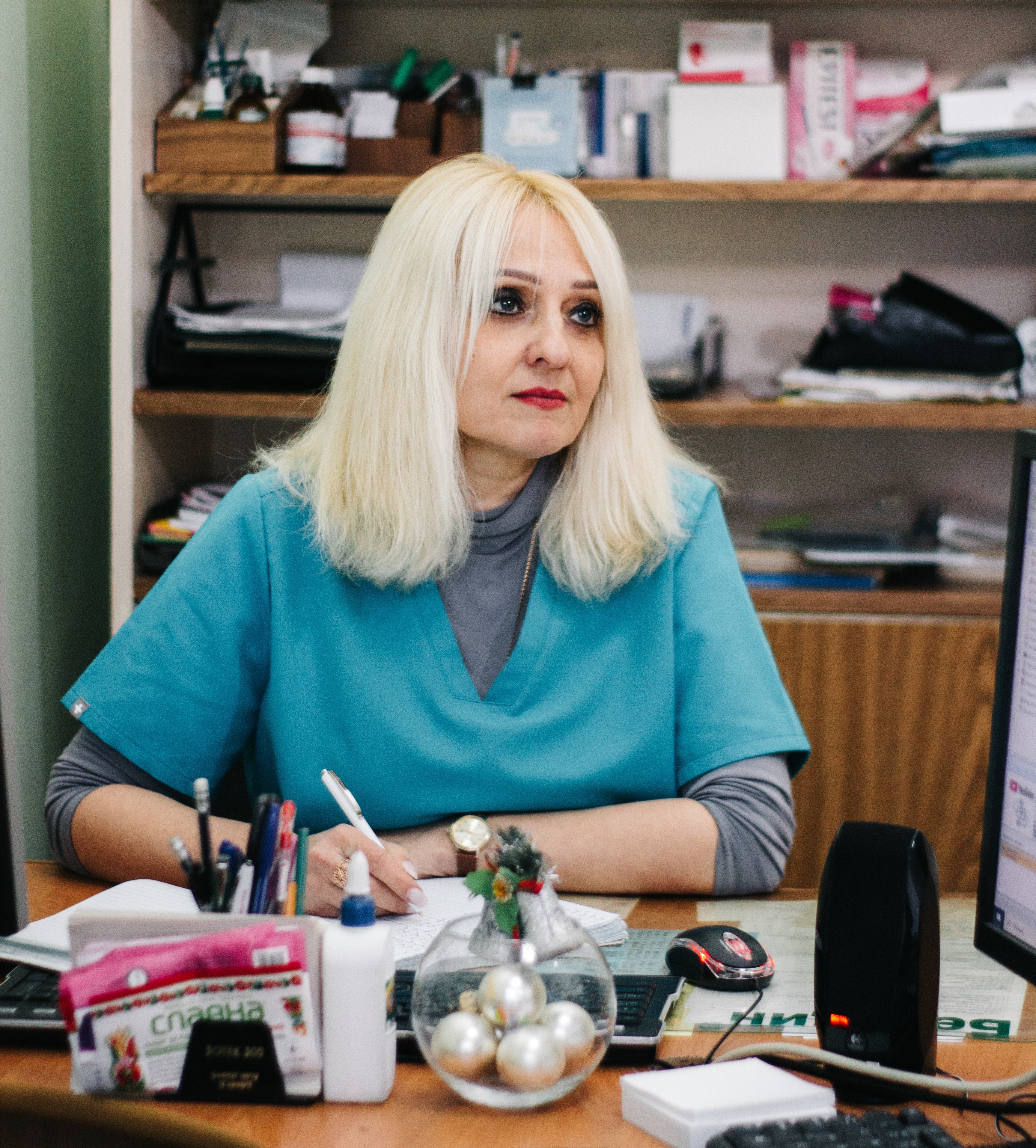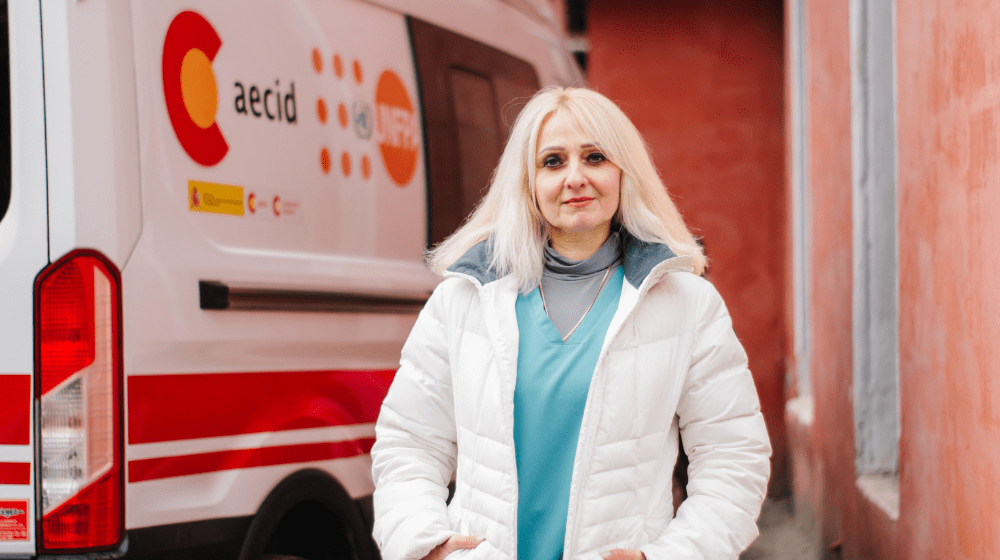Tetiana Putria works as a midwife in the gynaecology department of the Kherson region and also with the SRH mobile health unit of UNFPA Ukraine. Tetiana told us about her work and how medical workers are currently taking care of women's health in the frontline region.
"Since the beginning of the full-scale invasion, the number of women in our region has significantly decreased. Previously, our hospital had thirty pregnant women under medical supervision, but now there are only six. We are very glad that we can at least provide help to these six pregnant women. Mostly, older women remain here. The majority of our patients are of retirement age. Many people are leaving the city for safety reasons," shares Tetiana.
Providing stable medical services for the treatment and consultation of women is currently one of the most urgent needs in the region.Tetiana talks about her experience working with patients during the full-scale invasion.

"If we detect complex diseases, we then refer the patient to safer regions for long-term treatment and further observation. Therefore, during examinations and field visits by the mobile gynaecology team, we collect all the necessary tests, conduct examinations, and then send the results to the patients," Tetiana explains.
The war has led to changes not only in the healthcare system but also influenced common values in society. Tetiana notes that there are significantly fewer patients in the region. Patients are afraid to come to the city. Currently, even the villages in the Kherson region are safer than the city.

"I am not a hero, I am a medic. But my colleagues and I always strive to help people. Sometimes, the journey takes four hours during our field trips with the mobile gynecology team. Last week, we spent eight hours on the road to conduct a patient reception in a remote village in the Kherson region. The residents were surprised that we had traveled such a distance and were unafraid to visit their village," says Tetiana.

"Over 1,000 consultations have been provided by the medical specialists from the mobile gynaecology team in the Kherson region. Access to medical services is severely restricted, and most medical facilities have been destroyed due to their proximity to the front lines, resulting in a very high demand for consultations and medical assistance. In response to this challenge, a SRH mobile health unit and a mobile gynaecology clinic are operating in the region through the initiative of UNFPA," shares Bohdan Pidverbetskyi, Program Analyst for Sexual and Reproductive Health at UNFPA, the United Nations Population Fund in Ukraine, after he visits the Kherson Regional Perinatal Center.
Despite the very difficult security situation and logistical challenges in Kherson, Tetiana and her colleagues feel a duty to help people and remain in the city.
The SRH mobile health units operate as part of the humanitarian response activities of UNFPA, the United Nations Population Fund in Ukraine, with financial support from the European Union, the Ministry of Foreign Affairs of Denmark, Canada, France, and the Republic of Korea.


